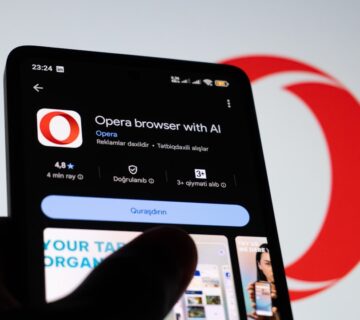The New Era of Search is Here
The days where we type our questions into Google and scroll through blue links to find what we needed are fading fast.
Now, if you want an answer on how to fix a leaky faucet or which productivity tool is best for startups. You’re likely asking the best ai tools like ChatGPT, Claude, Perplexity, or Gemini.
Welcome to the era of Generative Engine Optimisation, or GEO for short. The SEO of the future, but instead of optimising to rank on a search engine, you’re training AI to talk about you and recommend you.
Sounds futuristic? It’s not. It’s already happening.
Generative Engine Optimization (GEO)
Simply put, GEO is the practice of crafting your content and digital presence so that AI chatbots can understand, trust, and recommend you in their conversational answers.
Unlike traditional SEO, which focuses on climbing the ranks of Google search results, GEO is all about being the answer, not just a link in the list.
When someone asks ChatGPT, “What’s the best fitness tracker for runners?” or “How can I grow my email list fast?” you want the AI to mention you.
And guess what? That means creating content that feels natural in a conversation, is backed by trustworthy information, and helps AI “see” you as a go-to expert in your space.
Why Generative Engine Optimisation (GEO) Matters
We’re not Googling the way we used to. Instead, we’re asking AI assistants and they’re giving direct answers.
That’s a huge shift.
Businesses, creators, marketers, and professionals need to recognise that we’re not just competing for clicks anymore.
We’re competing for mentions in chatbot answers.
If your brand doesn’t show up in AI-driven discovery, you’re invisible.
Optimising for AI search isn’t a “nice-to-have.” It’s a must if you want to stay visible in this new digital frontier.
Search Behaviour Is Already Changing
Think we’ve got years before this shift happens? Not quite.
In fact, research shows that younger generations; Gen Z and even Millennials are already using AI tools over Google for fast answers, product suggestions, and decision-making.
Instead of typing “best wireless earbuds under $100” into Google, they ask a chatbot.
Experts predict that within 2-5 years, chat-based search will be the primary way people find information online.
Crazy? Maybe. But also kind of exciting, right?
How to Start Generative Engine Optimisation (GEO) Today
Here’s how you can start building your GEO strategy right now:
- Create Authoritative Content
AI relies on data. If you want it to reference your site, blog, or brand. You need to publish fact-rich, well-researched, and insightful content.
No fluff. Real, valuable information.
- Be Conversational and Context Friendly
Write like you’re talking to a curious friend. Use everyday language and natural phrasing that matches how people ask questions.
- Think in FAQs
Chatbots thrive on questions and answers. Create content that includes FAQs, how-tos, and clear explanations that directly map to what users ask.
- Build Trust with Citations and Consistency
If you’re an expert, say it loud. Cite credible sources, show off your experience, and keep your brand consistent across your site, social media, and publications.
AI notices that stuff.
- Get Involved with AI Friendly Platforms
Try publishing on or integrating with tools like Perplexity.ai, Google’s SGE (Search Generative Experience), or even ChatGPT plugins.
The more you’re in the AI ecosystem, the more likely you are to be pulled into chatbot answers.
What Happens If You Ignore GEO?
Simple: you risk becoming invisible.
Remember what it felt like for businesses that ignored SEO back in the early 2000s? They got left behind.
The same thing is happening again. Only this time, it’s faster.
If you don’t adapt, your competitors will dominate AI-driven discovery, steal your traffic, and build stronger trust with audiences that never even saw you in the results.
Don’t let that happen.
The Future of SEO is GEO
Now, don’t panic. SEO isn’t dead. It is evolving.
Think of GEO as the next step in SEO’s journey. Smart businesses aren’t ditching everything they know. They’re building on top of it to make sure they’re visible in the new world of answer engines and AI search.
Those who start learning, experimenting, and optimising for GEO now will be the ones who own the digital landscape of tomorrow.
Let’s Talk Generative Engine Optimisation (GEO)
We’re still in the early innings of this revolution. But GEO is gaining ground fast.
AI is rewriting the rules of visibility and if you want to stay relevant, you’ve got to meet it where it is.
Start with your content. Make it conversational, credible, irresistible for chatbots to ignore.
Because when someone asks an AI assistant a question, you want the answer to be:
“Here’s exactly who you need to check out.”
FAQs
Generative Engine Optimisation (GEO) is the practice of optimising your content so AI chatbots and answer engines can understand, trust, and recommend your brand in natural conversations.
Not entirely. GEO is more like an evolution. SEO still matters, but GEO prepares your content for AI-driven discovery, which is quickly becoming the new normal.
If you want your business to show up in answers from AI tools like ChatGPT or Gemini, you need to start optimising for GEO now. It’s about future-proofing your visibility.
Start by publishing authoritative, fact-based, and conversational content. Use natural language, include FAQs, and ensure your online presence is consistent and credible.
SEO helps you rank in Google’s search results. GEO helps you get mentioned in chatbot answers. Both are about visibility, but the platforms and rules are evolving.
Today. The AI shift is already underway, and early adopters are gaining ground. Don’t wait until your competitors have already taken the lead.
Conclusion
The future isn’t waiting and neither should you.
Generative Engine Optimisation is already reshaping how people find and trust information online.
If you’re a business owner, marketer, content creator, or entrepreneur, now’s the time to pivot your strategy.
Audit your online presence. Identify the gaps. Start creating content that speaks to humans in a way that makes AI take notice.
GEO isn’t a trend. It’s a transformation.
And those who lean in now won’t just keep up.
They’ll lead.





